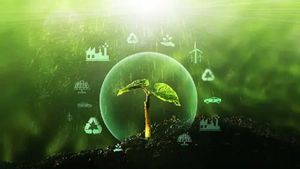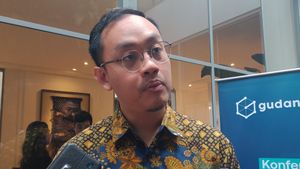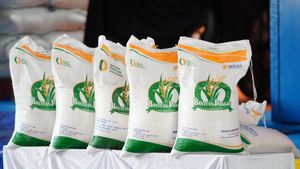JAKARTA - The transition from an extractive economy to a green economy is considered not only to benefit the country and entrepreneurs. However, the implementation of a green economy in Indonesia has the potential to increase people's income.
"People's income that business as usual only gets IDR 582.3 trillion, but if they move to a greener sector (achieved) IDR 902.2 trillion," said Economist and Director of the Center of Economics and Law Studies (Celios) Bhima Yudhistira to reporters quoted on Wednesday, December 20.
Bhima assessed that if the government wants to encourage higher household consumption, it means that people's income must also increase significantly.
"We see that sectorally starting from the procurement of electricity and gas, the processing industry, it will also be driven by higher income," he said.
SEE ALSO:
According to him, the green economy can increase the minimum wage for decent living in Jakarta, which is estimated to reach almost Rp. 15 million per month. Meanwhile, for now the minimum wage in Jakarta is only around Rp. 5 million.
"What is the answer? Yes, more opportunities for green jobs," said Bhima.
He added that extractive economies such as nickel and lead have high volatility. Volatility in crude and coal prices is out of control if geopolitical conditions heat up, such as the war between Ukraine and Russia.
"External factors make the economy (Indonesia) go up and down, including people's income. We have to move on and need a more sustainable economy," he added.
The English, Chinese, Japanese, Arabic, and French versions are automatically generated by the AI. So there may still be inaccuracies in translating, please always see Indonesian as our main language. (system supported by DigitalSiber.id)
















